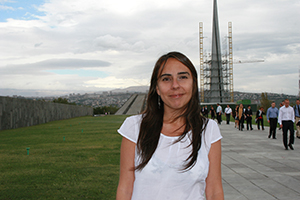Armenia is ranked as a “free” country in the Freedom on the Net 2014 report released by the Freedom House today.
Georgia is also ranked as “fee,” while Azerbaijan, Russia, Turkey are among countries in the “partly free” category.
Iceland tops the ranking, followed by Estonia and Canada, Armenia’s southern neighbor Iran is at the bottom of the table, Public Radio of Armenia reports.
According to the report, “the internet penetration rate in Armenia has continued improving over the past few years, accompanied by fewer restrictions on online content. Additionally, citizen groups and NGOs have made use of online communication tools to organize campaigns and promote policy changes in the country.”
According to the International Telecommunication Union, the internet penetration rate in Armenia stood at 46 percent in 2013, compared with 39 percent in 2012 and just 6.2 percent in 2008.
The Armenian mobile phone penetration rate reached 112.4 percent in 2013, compared to 111.9 percent in 2012 and 48.4 percent in 2008. Access to mobile broadband is available throughout the majority of the country and is affordable for much of the population.
In practice, the Armenian government and the telecommunication regulatory authority, the Public Services Regulation Commission (PSRC), do not interfere with or try to influence the planning of network topology. Operators plan and develop their networks without any coordination with either the government or the regulatory authority.
Armenian internet users enjoy access to internet resources without limitation, including peer-to-peer networks, voice and instant messaging services such as Skype and Google Talk, and popular social networks such as Facebook, YouTube, and Odnoklassniki.
The Armenian government does not consistently or pervasively block users’ access to content online.
Currently, self-censorship is not a widespread practice in the online sphere. The Armenian government and the ruling political elite have avoided the application of any extralegal measures to prevent political opponents or independent internet resources from publishing online content.
Freedom on the Net 2014 – the fifth annual comprehensive study of internet freedom around the globe, covering developments in 65 countries that occurred between May 2013 and May 2014 –finds internet freedom around the world in decline for the fourth consecutive year, with 36 out of 65 countries assessed in the report experiencing a negative trajectory during the coverage period.
In a departure from the past, when most governments preferred a behind-the-scenes approach to internet control, countries rapidly adopted new laws that legitimize existing repression and effectively criminalize online dissent.
The past year also saw increased government pressure on independent news websites, which had previously been among the few uninhibited sources of information in many countries, in addition to more people detained or prosecuted for their digital activities than ever before.










